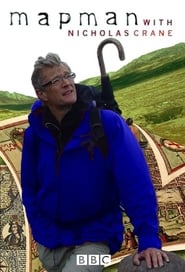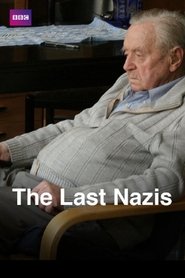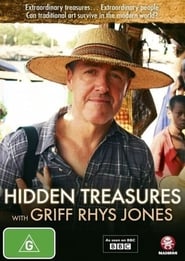Bbc Two TV Series - Page 92
-
Olivier Awards
1981
star 1Annual awards ceremony presented by the Society of London Theatre to recognise excellence in professional theatre in London. -
Last Chance Lawyer NYC
2018
Documentary series following the exploits of the criminal lawyer Howard Greenberg. -
Esther
0000
Esther
0000
Esther is a British talk show presented by Esther Rantzen. It was aired on BBC Two between 1995 and 2002 and over 600 episodes were made. -
The Foods that Make Billions
2010
A documentary series which tells the story of how big business feeds us by transforming simple commodities into everyday necessities and highly profitable brands -
Cracking Antiques
2010
Cracking Antiques
2010
Series which drags antiques from their pedestals, blows the dust off them and shows how they can be more affordable, stylish and better made than much of what the high street has to offer. -
What to Eat Now
2008
What to Eat Now
2008
What to Eat Now is a six-part series, broadcast on BBC Two and presented by chef Valentine Warner. The basic message behind the series is that people should eat food that is in season. The series has covered autumnal foods, both meats such as rabbit and pigeon, and fruits and vegetables and fungi, including apples, pears, pumpkins, chicory, beetroot and truffle as part of the series. The programme was first broadcast on 15 September 2008. In looking at apples, the show visited Benedictine monks, and talked about how they could find the best apples to make a dish called "apple charlotte". In looking at beetroot, the show visited a farmer who practiced biodynamic farming, believing that the phases of the moon could affect plant growth. The show travelled to Lindisfarne to illustrate mussel catching. Warner has also published two books entitled "What to Eat Now" and "What to Eat Now - More Please!" to accompany the series'. A second series was broadcast in 2009. -
Johnny's New Kingdom
2008
Johnny's New Kingdom
2008
Johnny's New Kingdom is a British television series presented by wildlife cameraman Johnny Kingdom. 10 episodes were first shown on BBC Two in March and April 2008. -
I Love the '70s
0000
I Love the '70s
0000
I Love the '70s is a television mini-series produced by the BBC that examines the pop culture of the 1970s. It was broadcast in ten hour-long episodes, one dedicated to each year, with the first episode, I Love 1970, premiering on BBC Two on 22 July 2000, and the last, I Love 1979, premiering on 23 September 2000. On the original broadcasts, each episode was followed by the host introducing a film from that particular year. The series proved successful and thus was followed by two similar series, I Love the '80s and I Love the '90s, both of which aired during 2001. The "I Love..."-series spawned a US version, aired by VH-1. Part of the series was repeated in the spring of 2012 on BBC Two as part of a special season dedicated to the 1970s. The episode 'I Love 1975" is the only episode that suffered technical problems, and as concluded as part of the years that the BBC suffered problems. -
Back to the Floor
0000
Back to the Floor
0000
Back to the Floor is a reality television series broadcast on BBC2 in the late 1990s and early 2000s in which CEOs or top level managers went undercover in their organisations and took a junior/entry level job in their company. This gave them much to about during the exercise and learn how their company really works, what the industry is like, and what their employees really think of them. -
Map Man
2004
Map Man
2004
Map Man is a BBC documentary series first broadcast on BBC Two in 2004 and repeated in 2013. Each episode recounts a particular tale in the history of British cartography, with a particular emphasis on the individuals whose dedication and ingenuity led to the production of some of history's most ground-breaking maps. The show is presented by explorer and writer Nicholas Crane, each week travelling some distance by bicycle, water or on foot to recreate the often treacherous journeys taken in the creation of that episode's map. -
The Family That Walks On All Fours
0000
The Family That Walks On All Fours is a BBC2 documentary that explored the science and the story of five individuals in the Ulas family in Turkey that walk with a previously unreported quadruped gait. The documentary was created by Passionate Productions and was broadcast on Friday 17 March 2006. The voiceover is Jemima Harrison. A revised version of the documentary that shifts the focus away from the story of the discovery of the family and includes the views of additional scientists was shown on NOVA on 14 November 2006. Debate exists as to the nature and cause of their walking, including controversial speculation in the form of the Uner Tan syndrome that it may be a genetic throwback to pre-bipedal hominid locomotion. Nicholas Humphrey, who accompanied the documentary makers, concluded that it was due to a rare set of genetic and developmental circumstances coming together. First, their mother recalls that initially all of her 19 children started off walking with a bear-crawl. Second, due to an inherited recess -
Up Sunday
0000
Up Sunday
0000
Up Sunday was a British late night comedy satire TV show shown on BBC2 that ran for 55 editions over four series from January 1972 to December 1973, featuring many comedy stars of its era. It was a spin-off from the arts discussion show Late Night Line-Up, and created by its Programme Editor, the late Mike Hill. Initially the show featured the "long, rambling topical reflections" of Willie Rushton and James Cameron. These were later pruned, and the cast enlarged to feature the likes of Clive James, Kenny Everett and John Wells. All broadcast late on a Sunday night. Wells said the show was "aimed at dirty minded insomniacs". The cast enacted the roles of newscasters, celebrities, pedestrians, and innocent bystanders. Described by the Off The Telly site as "a haphazard but worthwhile review of the week with plenty of above average material and a small but loyal audience". The show was very low-budget, and considered the very "last gasp" of the sixties satire boom, featuring many of that movement's key figures. The -
H G Wells: War with the World
0000
H G Wells: War With The World is a 2006 BBC Television docudrama telling the life story of the British author H.G. Wells, who is played in the film by Michael Sheen. The title of the film is clearly referencing Wells' most famous novel The War of the Worlds. -
What the Stuarts Did for Us
0000
What the Stuarts Did for Us is a 2002 BBC documentary series that examines the impact of the Stuart period on modern society. -
The Last Nazis
2009
star 6.7The generation of Nazis who fought during World War 2 is almost gone, their lives, their actions, and their crimes soon to be consigned to history forever. It's the last chance to tell these stories, to speak to these men; to enter their worlds; and uncover the impact their existence has had on others. -
Hidden Treasures of ...
2011
Griff Rhys Jones sets off on a series of adventures to find out what extraordinary treasure is still being created in far-off places by the indigenous people of today -
BBC Young Dancer
2015
BBC Young Dancer
2015
BBC Young Dancer 2015 is a brand new award for young people that showcases the very best of young British dance talent. Young dancers enter in one of four categories of dance: ballet, contemporary, hip hop and South Asian dance. BBC Young Dancer 2015 culminates in a grand final at Sadler's Wells, when the best dancers in each category will dance against each other for the title. -
Velvet Soup
0000
Velvet Soup
0000
Velvet Soup was a Scottish comedy sketch show, starring Gavin Mitchell, Steven McNicoll, Julia Duncanson and Mark McDonnell.




